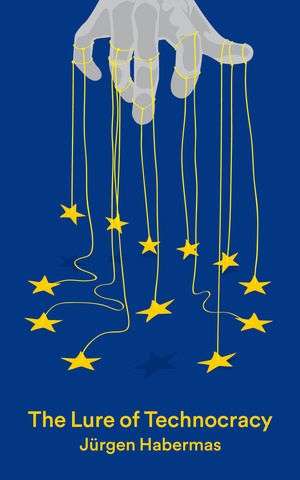The Lure of Technocracy

Editorial Polity
Fecha de edición marzo 2015 · Edición nº 1
Idioma inglés
EAN 9780745686820
200 páginas
Libro
encuadernado en tapa blanda
Resumen del libro
Over the past 25 years, Jürgen Habermas has presented what is arguably the most coherent and wide-ranging defence of the project of European unification and of parallel developments towards a politically integrated world society. In developing his key concepts of the transnationalisation of democracy and the constitutionalisation of international law, Habermas offers the main players in the struggles over the fate of the European Union (the politicians, the political parties and the publics of the member states) a way out of the current economic and political crisis, should they choose to follow it.
In the title essay Habermas addresses the challenges and threats posed by the current banking and public debt crisis in the Eurozone for European unification. He is harshly critical of the incrementalist, technocratic policies advocated by the German government in particular, which are being imposed at the expense of the populations of the economically weaker, crisis-stricken countries and are undermining solidarity between the member states. He argues that only if the technocratic approach is replaced by a deeper democratization of the European institutions can the European Union fulfil its promise as a model for how rampant market capitalism can once again be brought under political control at the supranational level.
This volume reflects the impressive scope of Habermas's recent writings on European themes, including theoretical treatments of the complex legal and political issues at stake, interventions on current affairs, and reflections on the lives and works of major European philosophers and intellectuals. Together the essays provide eloquent testimony to the enduring relevance of the work of one of the most influential and far-sighted public intellectuals in the world today, and are essential reading for all philosophers, legal scholars and social scientists interested in European and global issues.
Biografía del autor
Nacido en 1929, fue ayudante de Th. W. Adorno, de H.-G. Gadamer y de K. Löwith, y se habilitó como profesor universitario con W. Abendroth. Es considerado el representante más sobresaliente de la segunda generación de filósofos de la Escuela de Fráncfort y constituye un referente imprescindible para la filosofía y las ciencias sociales contemporáneas. Atento a las tradiciones del pensamiento social que parten del idealismo alemán, de K. Marx y de M. Weber, Habermas se dio a conocer internacionalmente con la publicación en 1968 de i Conocimiento e interés /i , título al que seguiría en 1981 su fundamental obra i Teoría de la acción comunicativa /i .<br> Profesor en las universidades de Fráncfort, Princeton y Berkeley, fue director del Instituto Max Planck de Starnberg. Entre los galardones con los que ha sido distinguido figura el premio Príncipe de Asturias de Ciencias Sociales.








